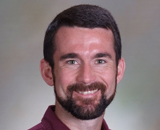 Once upon a time, there was a pain, a positive test, and “a possibly abnormal x-ray requiring clinical correlation.” As they travelled the world, no one could figure out where they came from. Many physicians racked their brains, but they remained a mystery, until one wise person said, “tell me your story.”
Once upon a time, there was a pain, a positive test, and “a possibly abnormal x-ray requiring clinical correlation.” As they travelled the world, no one could figure out where they came from. Many physicians racked their brains, but they remained a mystery, until one wise person said, “tell me your story.”
Our three travelers may be fictitious characters in a (rather unimaginative?) fairy tale, but they have seemed very real to me in recent weeks. Several of my more complicated patients have recently presented with rather complex problems, and whether composing referral letters or giving verbal report to a specialist, I’ve found myself going to extra lengths to tell the story of how I see their history, problems, exam findings, and test results fitting together. This may not seem that unusual, after all, communication is fundamental to good medicine, but it has been a good reminder to me of the primacy of story and narrative in understanding our patients.
According to the aphorism, most of the patient’s diagnosis, comes from the history. That seems to make intuitive sense, and it sounded very warm and humanistic to me when I was a medical student, but I’m struck over and over again by how easily it is forgotten. At least in America, in most medical settings we have so many tests, procedures, and diagnostics, that it becomes easy to focus on the patient’s test results to the neglect of the story.
When I trained for a year as a hospital chaplain (before I even entered medical school), we were reminded over and over again that what we had to offer the patients we worked with, was ourselves. As a spiritual counselor or spiritual guide, essentially the only tool we brought to our work with our patients was our person – our ability to listen, to empathize, to understand, to console. That approach would seem to carry naturally over into medicine, where our goal is to “To cure sometimes, to relieve often, to comfort always,” but our tools very often get in the way. It is easier, and feels more concrete, to run a test or rely on an x-ray or CT scan.
However, every one of us who has treated a patient, knows that more often than not, a set of test results fails to give a complete picture and can lead to more confusion than clarity. Radiologists may say it the most, but it’s true of every test—“clinical correlation required.” The problem with focusing on tests is that, for any given abnormality, it is often not straightforward whether the abnormality we are seeing is truly the explanation for the patient’s suffering.
One of the daily challenges I enjoy in my current practice is that we do not have a wealth of testing or imaging available on-site. De facto, that forces more reliance on history and understanding the patient. Sad to say, however, once I get to the hospital, I find myself (sometimes without even realizing it!), wishing for just a few more “confirmatory” test results to figure out that mysterious patient case.
What my recent string of complicated patients has reminded me, is that no matter how many test results we have, they seldom give us a clear picture without the context that is given by the patient’s story. I’m not sure, in the end, exactly how much of any given diagnosis truly comes from the story (80%? 90%?), and it surely varies from case to case. It is true, however, that without the patient’s story, we do not have context for understanding the evolution of the problem, and we do not have the framework to understand the patient’s agenda, hopes, or fears.
Our patients come to us with varying levels of complexity, and sometimes a plethora of seemingly confusing or clarifying test results. Listening to the narrative the patient presents is not just a good “warm and fuzzy” way to be a nice doctor, it is essential to understanding how all the complicated pieces of the picture fit together.
Without the story, we’ll be totally lost, and there’s no way to live “happily ever after.”
“I declare that I have read and understood the BMJ Group policy on declaration of interests and I have no relevant interests to declare.”
William E Cayley Jr practises at the Augusta Family Medicine Clinic, teaches at the Eau Claire Family Medicine Residency, and is a professor at the University of Wisconsin, Department of Family Medicine.
